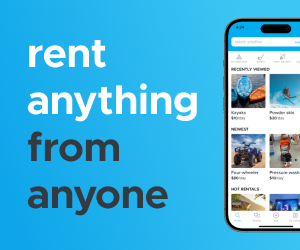Thursday Lunchon Revisits ‘Future of News’
Newspapers continue to struggle, but local television news audiences have grown slightly. Most people now get their news on mobile devices, but the once niche medium of podcasts has seen its audience surge. And that’s only in the last year.
Journalism and the overall media industry is in constant flux, which makes predicting the future especially hard… and also a favorite pastime. (I’ve certainly spewed my own unqualified opinions over the years.) On Thursday, the Hawaii Society of Business Professionals has ensured a lively conversation by tackling “The Future of News” in a lunchtime panel.
The HSBP, formerly the Hawaii Society of Corporate Planners, has been around since 1974. They hold monthly luncheons tackling a range of topics, which recently included Kaka’ako development, design thinking, the outlook for Gov. David Ige’s administration, and the tourism industry. But as a journalist-at-heart who’s at home on the outside looking in, this month’s topic is of particular interest to me.
Of course, Hawaii is one of the nation’s living laboratories for exploring “the future of news,” thanks to Pierre Omidyar’s ambitious launch of Civil Beat in 2010. (His journalism-focused initiatives have continued with First Look Media.) So it makes sense that the independent civic journalism outlet is represented on the panel.
Civil Beat’s deputy editor Eric Pape will be featured alongside Rick Blangiardi, general manager of Hawaii News Now, and Gina Mangieri, investigative reporter for KHON. Pape joined us on Hawaii Public Radio last week to preview the event and share some of his own thoughts on the news industry.
“No one really knows where it’s going to be in ten years, and the entire industry is questioning [it],” he said. “It makes it a very exciting space to be in, it’s a great time to be innovating, because you can try out a lot of things.”
“We do see trends, we do see opportunities, the question in many cases is how do you fund that,” he added.
And if you think his answer to making money is a paywall, which is something that both Civil Beat and the Honolulu Star-Advertiser employ, you’d be wrong.
“Paywalls are not the future of news,” he said. “Paywalls work in some cases, help bring in some money — and some money is better than no money — but if you’re looking to have an impact in a community, you need to be read, listened to, and watched.”
“If you don’t have that, you’re creating more exclusive information,” he noted.
Among the other topics Pape expects to come up include data journalism, social media, and audience engagement. The fundamental challenge is often reaching people who are already distracted and overwhelmed.
Pape, who has also contributed to The New York Times, Newsweek, Salon and Slate, asked: “How do you make difficult and complicated stories, stories that aren’t cat videos, stories that aren’t the easy stuff, into really compelling storytelling — really compelling, exciting, intersting and relevant to people’s daily lives?”
“There’s so much information that people have now because of the internet that a lot of the future of journalism is moving toward making sense of it,” he said. “It’s not saying, ‘here’s of all the information in the world,’ it’s ‘here’s what you really need to know… and then we’re going to tell you a great and powerful story.'”
The luncheon will be held from 11:30 a.m. to 1:30 p.m. on Thursday, Aug. 20 in the Mauna Kea Ballroom at the Hawaii Prince Hotel in Waikiki. For more information, visit the event page or the HSBP page on Facebook, Tickets are available online.
You can listen to Pape’s full interview here:
Luncheon photo courtesy HSBP on Facebook.









